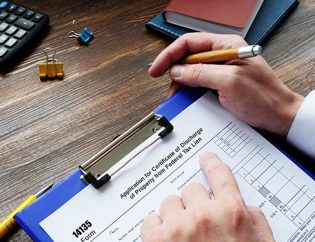Background
The Coronavirus Aid, Relief, and Economic Security (CARES) Act established the PPP program to support qualifying businesses through the coronavirus pandemic via forgivable loans. Loan recipients may have their loans forgiven (in whole or in part) if the funds are used to pay qualifying expenses, including payroll costs, payment of mortgage interest, rent, and utility payments. Section 1106(i) of the CARES Act excludes forgiven PPP loan amounts from gross income.
In May, the IRS issued Notice 2020-32, wherein the IRS clarified that PPP loan recipients may not deduct expenses whose payments result in PPP loan forgiveness. This finding was based on established tax law governing the deductibility of expenses attributable to tax-exempt income. Many commentators have voiced opposition to Notice 2020-32, arguing that the resulting indirect taxability of the PPP loan forgiveness runs counter to the legislative intent expressed in the CARES Act.
Revenue Ruling 2020-27 and Revenue Procedure 2020-51 have already drawn the ire of the top Republican and Democrat members of the Senate Finance Committee, who issued a joint statement on November 19, stating in part, “While we continue our efforts to clarify in any end-of-year legislation the intended relief in the CARES Act, we have an opportunity to provide meaningful relief to small businesses at this critical time. We encourage Treasury to reconsider its position on the deductibility of these expenses, and the timing of those deductions, to provide relief to the small businesses that need it most.”
Revenue Ruling 2020-27
This ruling addresses PPP loan recipients who pay qualifying expenses during 2020, but whose PPP loan is not forgiven by the SBA until 2021. The ruling provides two scenarios, whereby two different PPP loan recipients each spend their PPP loan proceeds on qualifying expenses during 2020, but one recipient applies for forgiveness in 2020, whereas the other recipient does not apply for forgiveness until 2021. In both scenarios the IRS determines that the deduction of expenses attributable to PPP loan forgiveness in 2020 is not appropriate, reasoning that in both cases the borrowers met the requirements for forgiveness (i.e. used the loan proceeds for qualifying expenses) and therefor both borrowers were reasonably expected to have their PPP loans forgiven, regardless of whether the borrowers actually applied for forgiveness in 2020.
Revenue Procedure 2020-51
This procedure provides a safe harbor for PPP borrowers who, in accordance with IRS guidance, do not deduct qualifying expenses attributable to anticipated PPP loan forgiveness in 2020 and who are subsequently informed that their loan forgiveness was denied (in whole or in part) or who later choose not to request loan forgiveness at all. This procedure offers a path for taxpayers to retroactively deduct expenses previously treated as non-deductible in 2020, effectively allowing borrowers to “true-up” the amount of non-deductible 2020 expenses with the actual amount of PPP loan forgiveness received.
Analysis
The language contained in Revenue Ruling 2020-27 and Revenue Procedure 2020-51 makes it clear that the IRS expects PPP loan recipients to apply for the full amount of forgiveness they are eligible for and therefor the IRS is requiring all borrowers to reduce the amount of their deductible 2020 qualifying expenses by the anticipated potential forgiveness amount. Given that the Payroll Protection Program Flexibility Act (PPPFA) passed in June provided for an extended 24-week covered period, presumably most borrowers will have paid sufficient qualifying expenses to claim full forgiveness for loans. Accordingly, it is doubtful that the IRS will entertain any arguments to deduct 2020 expenses attributable to potential PPP Loan forgiveness unless the borrower makes an irrevocable choice not to seek forgiveness (e.g. chooses to repay the PPP loan in full).
While the recent pronouncements provide much-needed guidance regarding the timing of the non-deductible expenses associated with PPP Loan forgiveness, many questions remain as to how to allocate the non-deductibility among the various qualifying expenses as well as how the non-deductible nature of those expenses impacts other Internal Revenue Code provisions (e.g. the qualified business income deduction, research and development tax credits, and the business interest deduction limitation, etc.). Given that many borrowers have paid qualifying expenses well in excess of their PPP loan amounts during the 24-week covered period, the choice of the type and amount of qualifying expenses reported on their PPP loan forgiveness application could ultimately impact their 2020 taxable income.
The PPPFA provides that borrowers have a 10-month period following the end of their covered period to apply for forgiveness before loan repayment is required to begin. Given that the IRS has indicated that the timing of filing for PPP loan forgiveness does not impact the timing of the disallowed qualifying expenses and that the potential for tax planning surrounding the application process exists, many borrowers should consider waiting to file for forgiveness until further guidance is released.
In Closing
While we are hopeful that Congress will take decisive action to legislate the full deductibility of qualifying expenses contributing to PPP loan forgiveness, it remains to be seen what will be accomplished in the current political environment. Regardless, we expect more guidance to be forthcoming from the IRS in the coming months and will continues to update you as new information becomes available. If you have questions or wish to discuss these matters, please contact us.
Sincerely,
Abeles and Hoffman, P.C.

